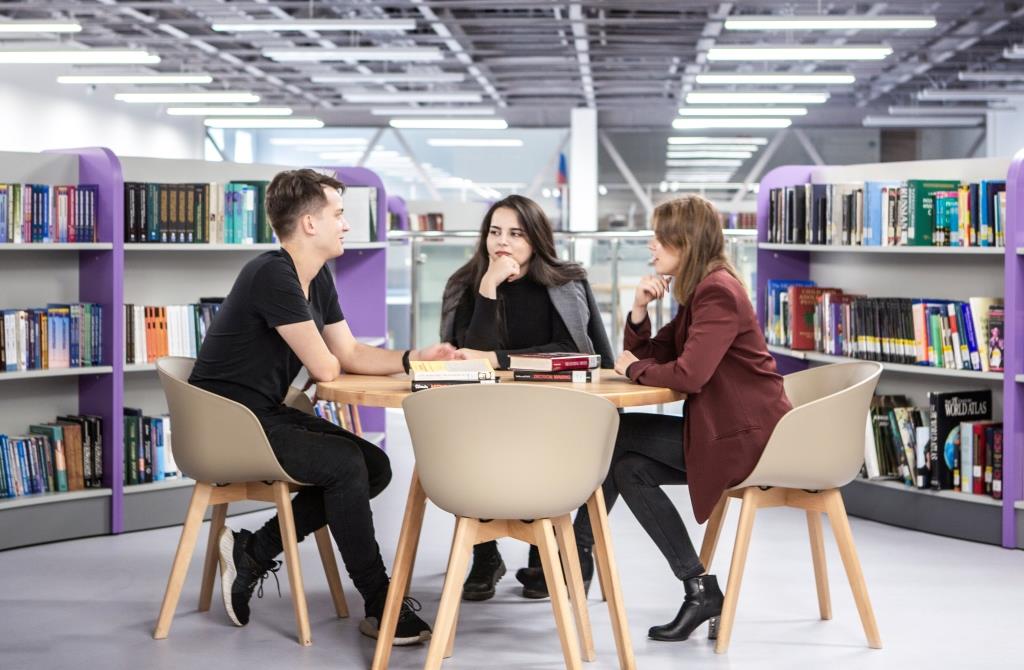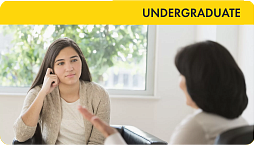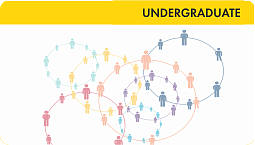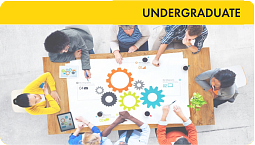Bachelor Degree programs at the Moscow School of Social and Economic Sciences are implemented in partnership with the Russian Academy of National Economy and Public Administration (RANEPA) and UK universities. Bachelor Degree graduates are awarded two Russian diplomas and one UK Bachelor degree, which opens the door to an international career.
Programs
Changing Academic Specialization
The first year at the School is common for students of all disciplines and programs; therefore you can revise your learning path while studying. After completion of the first year, students can change their academic specialization without passing additional exams (apart from the program “Psychological Counseling and Coaching”).I applied unconsciously: I applied to the program that matched my academic scores. My academic competition scores were enough to be enrolled to the state-funded program “Management of Creative Projects”, and then I realized that I like theoretical studies and do not want to be engaged in management and things like that. During the first year we studied disciplines like sociology and political science, which I really liked. Actually, I was choosing between these two disciplines. And it so happened that I was driven by an impulse to transfer to the “International Politics” program. I have always been interested in this, and I know that Shaninka delivers a strong theoretical background. Upon completion of the first year I applied to this program and was transferred without exams.
Programs Delivered in English
The UK Bachelor Degree programs are partially delivered in English. The number of courses taught in a foreign language increases gradually on a yearly basis and by the 4th year it reaches 60% of the total number of disciplines.Two Foreign Languages
- Students learn two foreign languages from the first year. English is a compulsory foreign language. Prior to studying, students’ knowledge of English is tested and then the students are divided into groups according to the language proficiency level.
- Students choose the second foreign language from 4 available languages: French, German, Spanish or Chinese.
Shaninka is highly demanding in terms of languages in. Even I, a native English speaker, sometimes get into a trouble, when I do now understand something. And there is an opportunity to choose any second language to learn. My brother is now entering a university in England, and he is provided with the same language choices that we have.
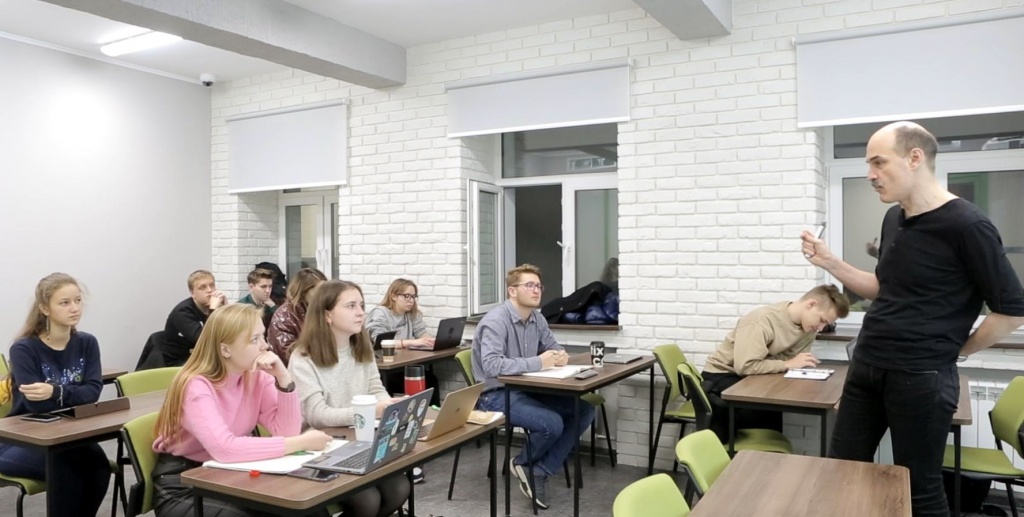
Small Groups
In Shaninka the training is delivered in small groups of 15-20 people.There are small groups in Shaninka, now I have less than 20 people on my course. This impacts how the academic staff teaches and interfaces with us.
You can always ask the lecturer something directly, immediately. Rather than waiting for the classes to be over. All classes are arranged in narrow circles, i.e. in small groups with the teacher being on the same level with the students. I think this makes you feel comfortable and multiplies the amount of information that you take away from the class. Everything delivered in this format is more efficient.
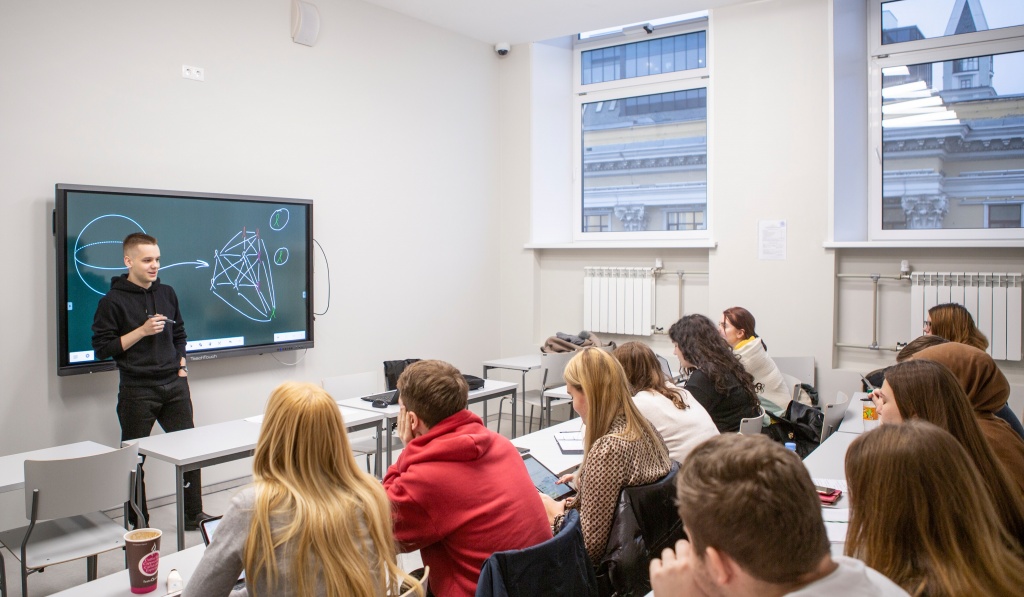
Tutor’s Support
During the learning process students are supported by tutors. First year tutors help students adapt to the new reality. While academic tutors help to work with written texts, i.e. essays, course papers, graduation papers.We meet with the students on September 1 and communicate throughout the year. Twice a month, I run group tutorials where we develop useful and important soft skills for learning: for example, how to overcome procrastination or how to properly manage time to get everything done. I also meet with each student individually and we discuss his/her vision of the professional specialization: does it correspond to the student’s expectations? And is this really what the student wants to do? Upon completion of the first year, all UK Bachelor Degree students have the opportunity to switch to another Liberal Arts program and our tutor's task here is to help them make this choice consciously.
As an academic tutor, I help students overcome their fears related to texts written by other people and to stop suffering when they compose their own texts. Students come to me when they need to choose or clarify the topic of their written work, to structure the draft, put their thoughts in words, improve the already completed text, master their skills related to reading and comprehension of sophisticated texts, understand where to look and how to select material for essay, course paper or graduation paper.
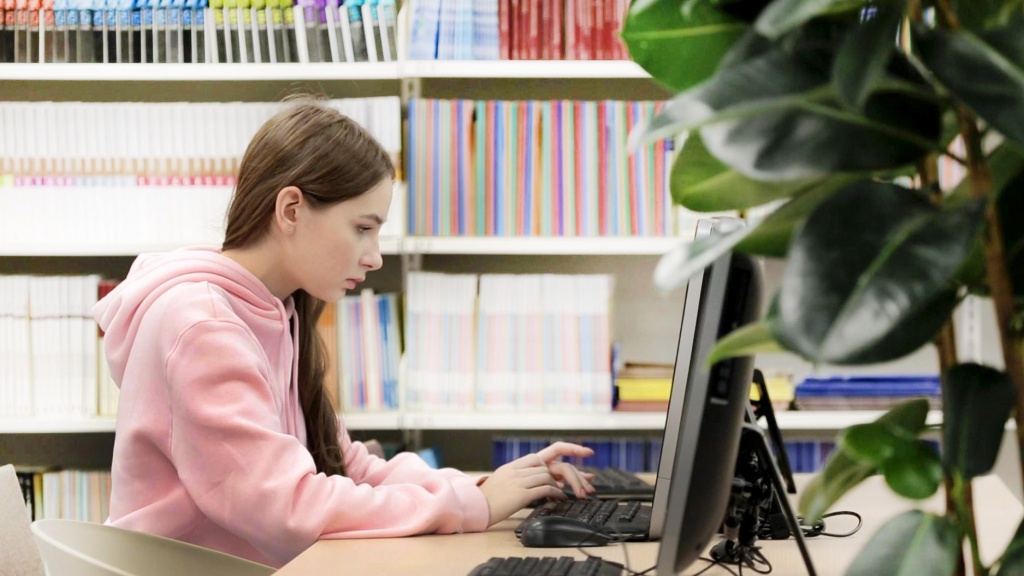
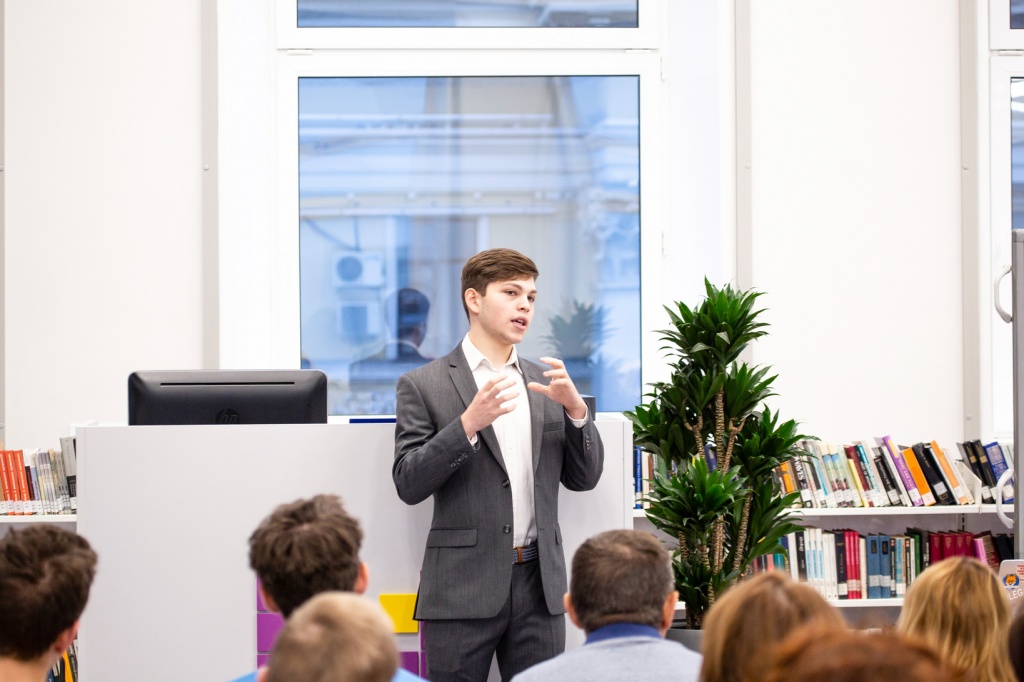
Forms of Learning
Students can independently choose some disciplines and customize their learning path. Students write academic essays and do not take oral exams and end-of-term tests. The training is delivered in very small groups; most of the classes are arranged as discussions and seminars. This helps our students develop critical thinking and academic writing skills both in Russian and English.Last year we had seminars by Alexander Zaritsky on Political Science; firstly, he gave us some text to read at home. When you read it you understand only half of it. And then in class we begin to discuss it, and everyone puts forward their own hypotheses, asks what was unclear to him or her. It's great that we discuss everything together and come up to some conclusions together. It is not so that anyone has to figure it out for himself/herself, while in the classroom someone will have to provide “correct” explanations. It is also very nice when the lecturer calls us colleagues. It's a little funny though.
Firstly, it is an open communication “lecture – student”. You listen, and you can speak, they allow you to do it. At our university there are no lectures at all, classes are seminars, discussions.
Then there are high demands to academic progress. There will be serious questions for you, if you do not show good academic performance and are not highly involved in learning, this is the key. Because you can be, I don’t know, a genius, and may not attend the classes, and then you come to take an exam and pass it, but this will not last long. It creates a competitive environment, and it is very cool to be a part of it.
And finally, here we have interesting disciplines. Every time I come to the classes, I learn something new, just every day! Except, maybe, the English classes. You can easily see that all lecturers are very prepared people: it will surely take time when they will not be able to teach us anything new, as it happens sometimes in Russian universities.
Shaninka is highly demanding in terms of languages in. Even I, a native English speaker, sometimes get into trouble, when I do now understand something. And there is an opportunity to choose any second language to learn. My brother is now entering a university in England, and he is provided with the same language choices that we have.
For example, we read a text and everything written seems to be as clear as crystal, even in Russian. But when you yourself try to comprehend it, ask questions about the text, it can be very difficult. There is a teacher who does not experience the same difficulties as you do, but at the same time he/she does not share his/her ultimate truth, but helps you to streamline your thought process. Sometimes he suggests: “Imagine that you are Weber, and you are Sombart, please argue with each other!” This is exactly how it works: by finding arguments to defend your position, you can comprehend the meaning of what you have read. When we have discussions during our classes, everyone participates in the discussion and the level of engagement depends on how much you have to contribute to the discussion. It does not happen this way that there is one talking head while the rest of us must agree with what is being said and cannot challenge it because of the speaker’s authority. Authority is shaped through discussion.
I think that the primary disciplines taught during in the first year in all programs are philosophy and critical thinking. Why philosophy? Because the knowledge that you will get during the classes will then crawl out of your mind absolutely everywhere. And I liked critical thinking due to our lecturer: we watched movies, read very large books, 300 pages each, in a week. This is a blend of cultural studies+ philosophy and a little bit of sociology and political science - and all this is taught during the first year!

International Internships
Students studying at the UK Bachelor Degree programs have an opportunity to take part in annual international educational programs:- Language summer courses,
- Short-term educational programs in partner universities,
- Exchange programs,
- Participating in international conferences,
- Online and offline internships in foreign companies.
Participation in international educational programs is paid:
1. By the MSSES in full;
2. By students;
3. Partially by the MSSES.
Payment terms are determined by a grant competition.
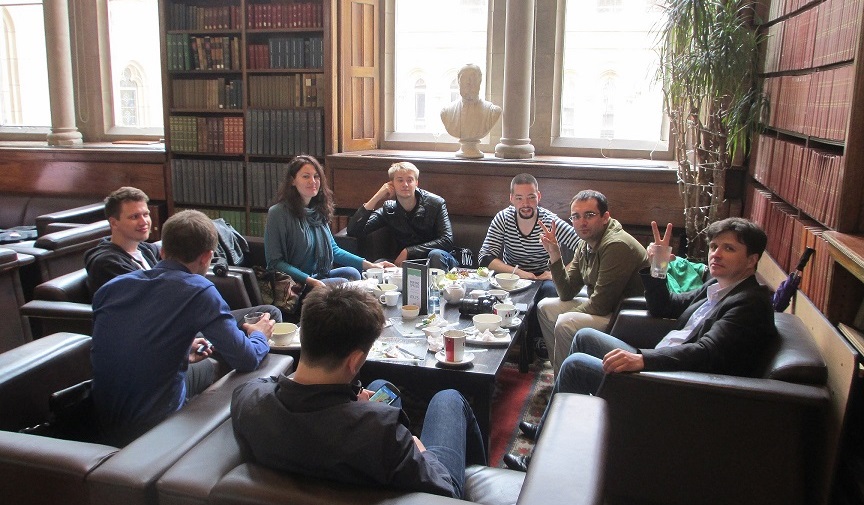
Student Peers and Community
Since students may transfer to another specialization upon completion of the first term, there is a natural selection here - only those who are interested remain on the program. Therefore, in my group there are people who like political science; they see their future related to it. There are no students who might skip classes if they are not interested in studying something. That is, it is a community where you feel yourself very comfortable: we all have same interests and goals.
Alina Petrova
Unique Library
The library is a nice space suitable for both intensive individual studies and for live communication with peers. It is equipped with everything you need for your work: computers, printers, Wi-Fi, comfortable tables and chairs that can be rearranged, and, of course, multiple power sockets.The library collection embraces the best books on any discipline taught in the MSSES and general human knowledge in English and Russian. The collection of books is regularly updated: books for the library are carefully selected by deans of faculties and heads of training programs to address requests made by lecturers and students and also to follow current trends. All books are freely available in the library reading space.
The Shaninka Library is a wonderful place; it is like a life hack. I do not know how other students manage to organize their work, I cannot study at home – I am distracted by everything. While here you enjoy a working atmosphere, you come and feel yourself being a part of something more meaningful than just your homework.

Busy Extracurricular Life
There is a student council in Shaninka that helps students adapt to their studies and arranges events.I study probably 90% of my time. And this does not mean that I do not doing anything else - it seems strange to me when you are loaded with your studies and have no other life. It is not the right way. The goal of the university is to teach you how to properly distribute your resources for studies, personal life, and other things. And I think that I have already learned how to do this.
Early this year, some of my fellow students and I organized the freshmen initiation in Shaninka. We liked that you can gather different people in a place to communicate, have fun, and no pressure on anyone in terms of any ceremonies - we just got together and talk, everyone finds a company for themselves.
